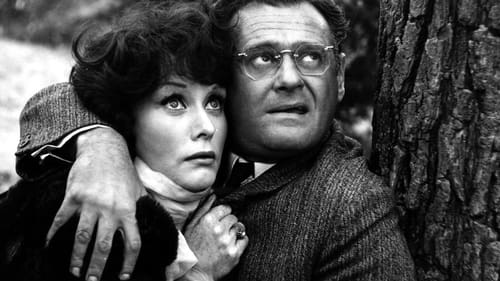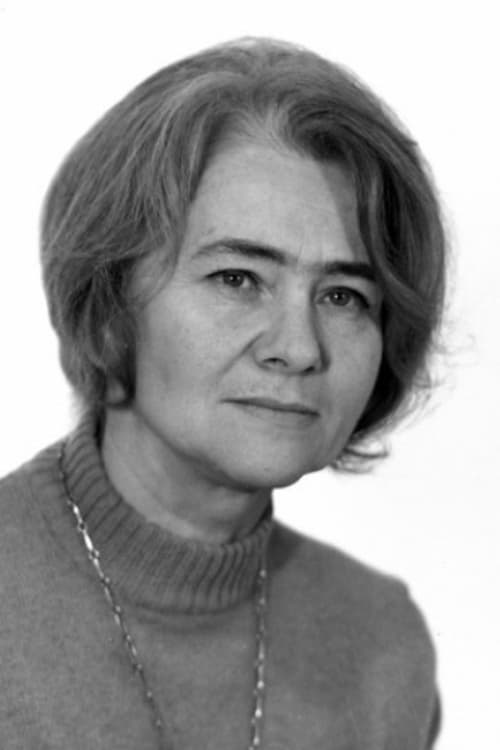Ewa Petelska
出生 : 1920-12-24, Pyzdry, Wielkopolskie, Poland
死亡 : 2013-08-20
略歴
Ewa Petelska was a Polish film director and screenwriter. She directed 26 films between 1951 and 1985. Her 1963 film Black Wings (Czarne skrzydła) was entered into the 3rd Moscow International Film Festival where it won a Silver Prize. Her 1973 film Copernicus (Kopernik) was entered into the 8th Moscow International Film Festival where it won the Silver Prize.
She often collaborated with her husband, Czesław Petelski.

Director
The story is set in 1939. A military officer is stripped of his rank for his apparent collaboration with a counter-espionage agent while on a mission in Paris. Then he is enlisted in his own country's counterespionage unit, due to his knowledge of languages. He is assigned to Gdansk where he is trying to uncover mysterious "Wotan" in the German Secret Service. He eventually tracks down and kills the agent, but by doing so wipes out the possibility to clearing himself of the charges. Just as the death sentence is to be carried out on him the war breaks out and he escapes out of the bombed prison to join partisans.

Writer

Director

Director
The four sequences in the film cover four days in a life of young Warsaw lad in September 1938, 1939, 1943 and 1944. In the first sequence Jurek decides not to study in the Sorbonne but enlists in a Polish military school instead. In the second sequence the war starts and Warsaw is occupied. In the third sequence he works in the underground resistance. The final sequence takes place during the Warsaw uprising.

Scenario Writer

Director
Drama directed by Ewa Petelska and Czeslaw Petelski.

Writer

Director

Director
Poland's submission for the Academy Award for Best Foreign Language Film in 1973

Writer

Director

Director
The first Polish film to discuss the failure of September 1939 Polish-German war. We can see it from the point of view of a university intellectual, fascinated by German culture, who decides to take active part in the conflict. Professor Gabriel Tomicki spends the last evening before WW2 breaks out quarreling with his university colleague Professor Dog-Lesniewski about the superiority of German over French culture. He finds German culture fascinating and believes neither in war, nor in Nazi barbarity. When the war begins, he tries to enlist and befriends Florentyna, a nightclub dancer and his neighbour. Gabriel falls in love with her, finally manages to become a soldier and even prove his courage. One day, he meets by chance his university adversary Dog-Lesniewski... —kinoholik

Screenplay
During the war, a nurse finds footwear belonging to a Soviet soldier. The discovery haunts her.

Director
During the war, a nurse finds footwear belonging to a Soviet soldier. The discovery haunts her.

Director
A friendship grows between two prisoners when they haul a cart with provisions during the evacuation of a concentration camp. However, their friendship ends tragically.

Screenplay
A Soviet soldier stays with a Polish family.

Director
A Soviet soldier stays with a Polish family.

Director

Director
1945. Home Army soldier who hides in the village must decide if he wants to engage into dangerous situation to help group of Jewish runaways.

Writer
The miners of one of the mines in Zagłębie Dąbrowskie receive news about the planned layoffs. The miners decide to organize a strike. One of the local MPs is trying to prevent this from happening. The French mine owner makes a dangerous decision - he orders the miners to work in an area at risk of fire. An explosion occurs unexpectedly. The miners lynch Coeur, and their demonstration, in which they carry the bodies of the victims of the crash, is brutally suppressed by the police.

Director
The miners of one of the mines in Zagłębie Dąbrowskie receive news about the planned layoffs. The miners decide to organize a strike. One of the local MPs is trying to prevent this from happening. The French mine owner makes a dangerous decision - he orders the miners to work in an area at risk of fire. An explosion occurs unexpectedly. The miners lynch Coeur, and their demonstration, in which they carry the bodies of the victims of the crash, is brutally suppressed by the police.

Screenplay
The movie is about the fate of Polish soldier named Kaleń who fought with UPA in 1945. Set in the closing days of World War II, the film recounts the adventures of the Polish soldier caught in the turmoil among the Polish Communist army, anti-communist underground and Ukrainian fascists.

Director
The movie is about the fate of Polish soldier named Kaleń who fought with UPA in 1945. Set in the closing days of World War II, the film recounts the adventures of the Polish soldier caught in the turmoil among the Polish Communist army, anti-communist underground and Ukrainian fascists.

Scenario Writer
A deeply touching psychological drama adapted from the novel 'Kamienne niebo' showing the Warsaw Uprising through the prism of civilians’ tragedy. A classic feature trick of locking characters up in a confined space allowed the film creators to focus on the psychological portraits of their characters and the experience of an individual facing a hopeless situation. Warsaw, the last days of the Warsaw Uprising. A few inhabitants are imprisoned under the rubble of a tenement house in the Old Town. To start with the characters are not very worried by the incident. They are convinced they will be freed soon, however no help is in sight. They run out of food and their attempts to get out of the trap prove unsuccessful. Every captive reacts differently to the extreme and life-threatening situation. A Warsaw wheeler-dealer Maniuś tries to take some action, an old professor loses his eyesight and the seemingly rational janitor goes crazy… The last oil-lamp goes out.

Director
A deeply touching psychological drama adapted from the novel 'Kamienne niebo' showing the Warsaw Uprising through the prism of civilians’ tragedy. A classic feature trick of locking characters up in a confined space allowed the film creators to focus on the psychological portraits of their characters and the experience of an individual facing a hopeless situation. Warsaw, the last days of the Warsaw Uprising. A few inhabitants are imprisoned under the rubble of a tenement house in the Old Town. To start with the characters are not very worried by the incident. They are convinced they will be freed soon, however no help is in sight. They run out of food and their attempts to get out of the trap prove unsuccessful. Every captive reacts differently to the extreme and life-threatening situation. A Warsaw wheeler-dealer Maniuś tries to take some action, an old professor loses his eyesight and the seemingly rational janitor goes crazy… The last oil-lamp goes out.

Director
Diver Antoni Barnat is falsely accused of causing an accident underwater that almost led to his fellow diver's death. Interestingly enough, they are both in love with the same girl, Teresa.

Writer
Three separate short stories about young athletes who lose their chances of success. Young swimmer - because of unhappy love. Boxer because of a fight with hooligans, for which the judges will disqualify him. But the cyclist must decide for himself what is more important for him: victory or friendship.

Director
Three separate short stories about young athletes who lose their chances of success. Young swimmer - because of unhappy love. Boxer because of a fight with hooligans, for which the judges will disqualify him. But the cyclist must decide for himself what is more important for him: victory or friendship.

Scenario Writer

Director

Director
A doctor comes to terms with the Spanish Inquisition in a classic battle of science vs. religion.




